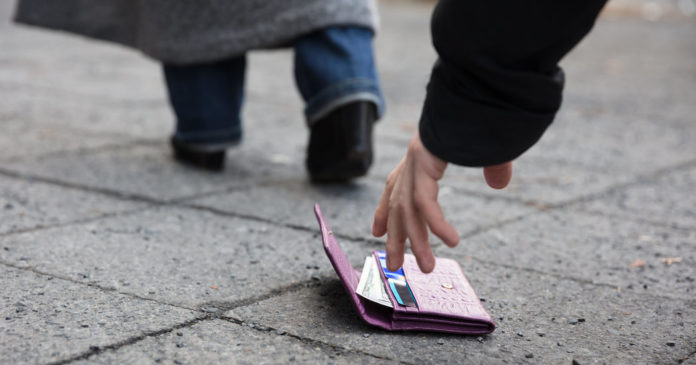So they tested that in Switzerland, which has relatively little corruption, and the Czech Republic, which ranks at the opposite extreme, Dr. Cohn said. In both countries, nearly all the money was returned with the wallets, except for some change, which they think accidentally fell out.
Dr. Mazar, who’s studied people’s honesty in laboratory experiments, said that altruistic result underscores people’s concerns about self-image. “Taking the money and returning the wallet would make you equally bad, or actually even more bad,” she said. “There’s no way you can convince yourself that you are a moral person.”
The researchers surveyed people to see if they expected bigger rewards for returning more money; they didn’t. They also tested for altruism by planting wallets containing money but no key, the one item specifically valuable for the wallet’s owner. People reported those too, although less than wallets with keys.
The study cost $600,000, funded by a Swiss economics think tank.
Countries showed different rates of reporting lost wallets. Switzerland and several Scandinavian countries had the highest rates; China and Morocco had the lowest. The United States was in the middle. Americans were about as likely to report wallets containing money as people in Spain, France and Russia.
Jonathan Schulz, an economics researcher at Harvard who was not involved in the study, said characteristics like homogeneity and national loyalty might help explain differences.
Countries with high wallet-return rates “have very open societies, high mobility, people are not living with their families,” he said. “Countries at the bottom, like Kazakhstan, United Arab Emirates, Indonesia, have a very strong in-group morality — it might even be immoral to return the wallet instead of giving the money to your family.”
He added, “I’m not sure what’s going on with the United States.”
Michel Maréchal, a co-author of the study, who is an economics professor at the University of Zurich, said organizations might encourage integrity by “making people more aware of the negative impact that behavior can have on others, as well as by making it more difficult for more people to persuade themselves that they’re being honest when they in fact did something wrong.”
Source : Nytimes











